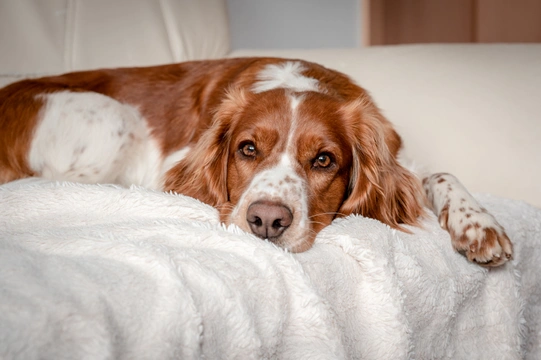
When should a dam that is having a litter see the vet?
Like virtually all animals, dogs usually can and do mate, carry their young to term, deliver and raise their babies without the need for any human intervention. However, unchecked and unsupervised breeding is not a good thing for domestic dogs, because there are so many unwanted dogs in shelters and rescue organisations, as well as a wide range of hereditary health conditions that can affect specific breeds, which spread widely throughout the population if this is not monitored.
When it comes to deliberately breeding pedigree dogs to produce a litter for sale, whether you are a first-time breeder who simply wants to allow their pet to have one litter, or are a professional breeder who breeds a select number of pedigree dogs as a business, it is vital to breed responsibly.
This means many things, including assessing whether or not breeding in the first place is in the best interests of the dogs themselves and the wider canine population-and even then, responsible breeding needs to be planned, and performed with the best interests and health of the parent dogs and the pups in mind.
A vital part of responsible breeding means breeding for health-to improve the health and welfare of subsequent generations, breed out faults or health problems, and generally, do everything possible to ensure fit, healthy litters.
Producing a healthy litter starts with healthy parents-and a sensible approach to planned breeding that is carried out with the assistance of your vet.
There are several points along the timeline from pre-breeding to saying goodbye to the weaned litter at which you might want or need to involve your vet-and in this article, we will look at when and why a dam that is being bred from should be checked out. Read on to learn more.
Breed health testing
First of all, before making the decision to breed from a pedigree bitch, you should ensure that they are healthy and have a good conformation, and that they are not either affected by nor carriers of any known hereditary health problems that can pose a threat to the breed.
Find out about the recommended health tests pertaining to the breed in question, and ask your vet to take a DNA sample for testing, or to perform any physical tests required before you make a definitive decision to breed from your dog.
Pre-breeding screening
Dogs can and do sometimes carry sexually transmitted infections, such as brucellosis-which can lead to the loss of an entire litter before it is born. Both the dam and the sire should be tested for canine STIs before breeding!
Confirming a healthy pregnancy
Once the two dogs have mated, you may want to have the dam checked out by the vet again at around three to four weeks into the pregnancy, to confirm conception and check for any problems. Ultrasound examination may even be able to tell you how many pups to expect at this stage!
Delivery
Dams generally give birth naturally without the need for any outside assistance, so unless you are expecting problems with the delivery itself, you probably won’t need the vet to be there. You may even find that your dam has her litter in the middle of the night and you won’t know about it until it is all over!
However, if any problems arise during delivery, you should contact your vet promptly to intervene, as some issues can seriously threaten the health and life of both the dam and the pups.
Additionally, some dams will need to be delivered by caesarean section-this is common in certain breeds with large heads and/or narrow hips, like the French bulldog. Your vet will be able to advise you on this well before the expected delivery date, and the procedure should be scheduled in ahead of time. However, if your dam goes into labour early or it only becomes evident that a caesarean will be required later on, you should contact your vet as a matter of urgency.
Checking the pups and dam
It is a good idea to schedule a check-up for your dam and her new pups within a few days of the pups being born, to make sure that all of the pups are well and healthy and getting enough milk, and that the dam is fine too and not suffering from any issues that may affect her own health, or ability to care for the pups.
It is also mandatory for all dogs in the UK to be microchipped, and this must be carried out by the breeder prior to selling or rehoming the pups, and this can be performed at the same time as the pups have the first of their two initial vaccinations.
Any problems
You should always make your vet aware if you plan to breed from your dog or your dog is pregnant, so that they can update their records and have this information to hand if you do need help later on.
If you have any concerns at any stage of the process, it is always wise to talk to your vet about them too-just to be on the safe side.



